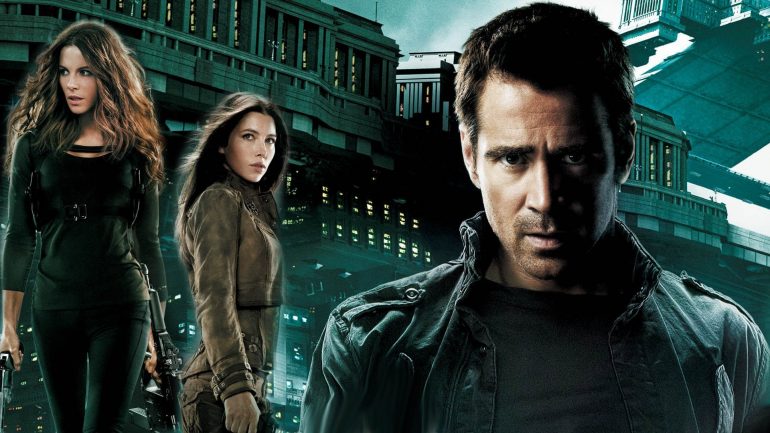The original Total Recall is built upon two major story lines. On the one hand, there’s the misery, which Douglas Quaid brings upon himself by going to Rekall which was planned by his former self Carl Hauser and his employer and friend Vilos Cohaagen. Of course, Hauser willingly got all memories of his former self erased and replaced by a new identity.
On the other hand, the audience is left out in the cold over an explanation to whether all incidents that happen after Quaid visiting Rekall are real or just part of his “ordered” identity as a secret agent.
BOTH of these key elements are almost entirely absent from the Theatrical Version of the Total Recall-Remake. The audience was not amused and criticized this absence of complexity. Director Wiseman, however, apparently seemed to know his audience better than they knew themselves. During an early interview, in which he explains the differences between the Theatrical Version and the Extended Cut.
He said: “This is more of a director’s cut, this is closer to my original cut. I’m not saying anything that’s unknown, but movies are always cut down and there’s a lot of complexity within the film that is not always widely accepted by the general audience, which is just a reality; a movie of a certain size, they don’t want people to be too—it’s a balance of how deep to keep going with these ideas.”
In the Theatrical Version Carl Hauser was actually converted to the resistance by Melina. Cohaagen wants his (ex) best agent back via a memory backup that is supposed to revive his former self Hauser.
This probably alienated audiences worldwide, especially since three authors – Ronald Shusett, Dan O’Bannon, and Jon Povill – who also wrote the original script from 1990 were involved in the production of the remake. This is (positively) noticeable in the final result – unfortunately not in the Theatrical Version which was edited “for the masses”. Here, Hauser – who appears in video messages – was played by Farrell – just as his alter ego Douglas Quaid.
In the Extended Director’s Cut, Carl Hauser is played by Ethan Hawke, who transforms into Douglas Quaid via having his memory erased and replaced AND a plastic surgery, in order to get to the leader of the resistance so that it could be defeated. Thus, Hauser’s usage of other fake identities is stressed much stronger.
The link to the possibility that everything which Quaid experiences might all just happen in his own fantasy isn’t entirely absent from the Theatrical Version. However, it is downplayed to a minimum, so that a lot of viewers didn’t even notice it. Still, you could search for, collect and evaluate several details (visual, audible, and concerning the plot or the dialogues) in order to come to an answer. Apart from people panning and bashing the movie (most of the time with nothing but stock phrases) there were some internet users who were debating these small details.
The Extended Director’s Cut offers a more complex plot, especially because of Harry’s attempt to get Doug out of his (alleged) illusion. The German Blu-Ray even calls the final sequence an “alternate ending”. Only this version gives you a chance to witness the whole complexity of the script which gives you a lot of hints which are supposed to be discovered and decoded.
Apart from that, the differences between the two versions – concerning the scenario which right from the beginning was planned by Cohaagen and Hauser – are the most important ones, since many dialogues had to be changed in order to fit to the Theatrical Version. As a result, the Extended Director’s Cut (among other things) offers a few interesting details such as the father-daughter-relationship between Matthias and Melina, as well as (thankfully) more screentime for Brian Cranston as Cohaagen.
Last but not least, some material that had to be taken out due to censorship was cut back into the EDC. It pushes Total Recall slightly towards an R-Rating, however, it’s hardly worth mentioning. For example, there are a few additional/alternative shots of the woman with three breasts, a reminiscence to Verhoeven’s original which was not done well.
IN the end, there’s no way around the Extended Director’s Cut, respectively the Blu-Ray if you think about watching the remake of Total Recall at all. This version might be a second chance for cinema goers worldwide who felt let down by the Theatrical Version – the Extended Director’s Cut deserves it!
97 Changes:
– 51 extended scenes in the Extended Director’s Cut
– 8 extended scenes in the Theatrical Version
– 22 alternative shots
– 7 alternatively arranged scenes
– 8 altered dialogues
– 1 changed scene
To see more details click on the link
I have to say that my favorite version is the theatrical, it’s more straightforward and the nudity and violence added from the DC it’s not enough for me to prefer the DC.






